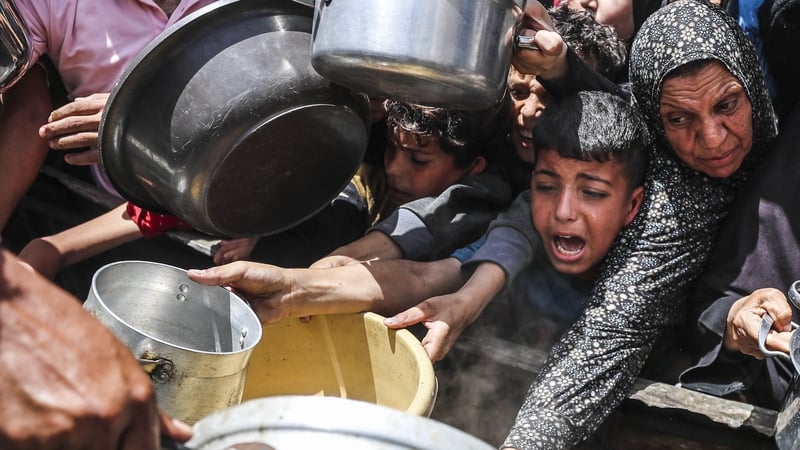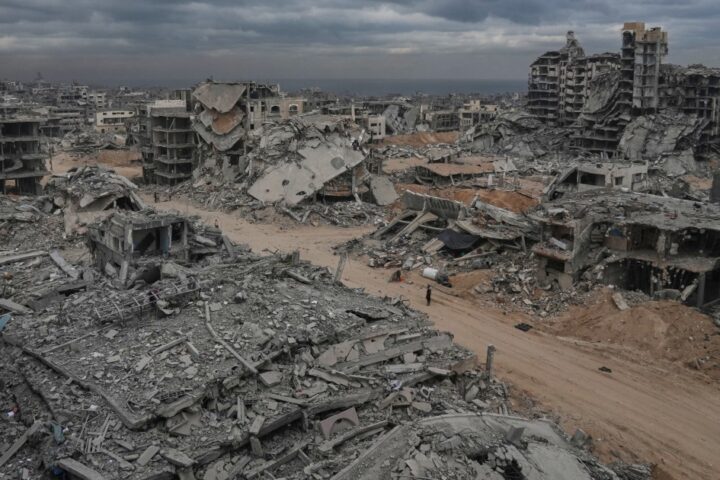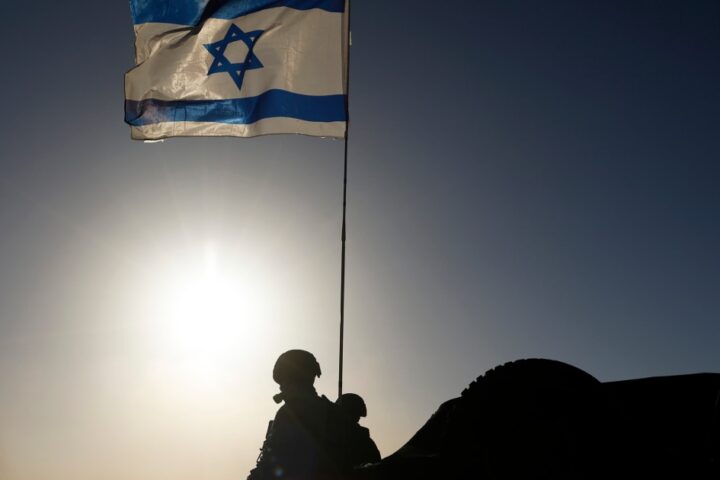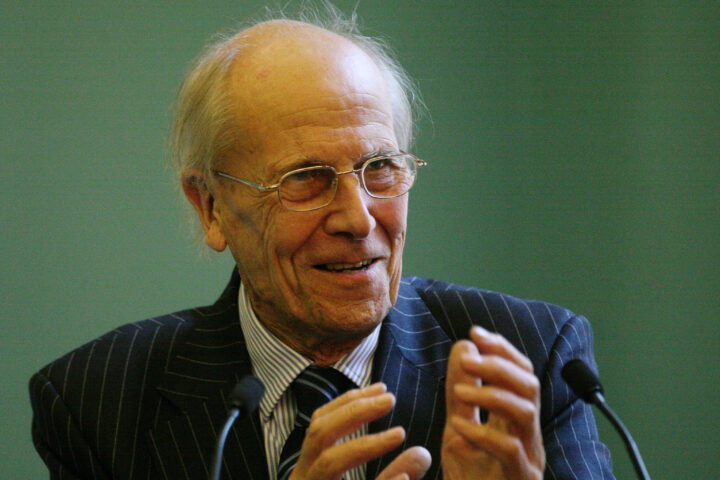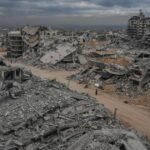The United Nations has said that it had no information on whether a US-backed aid group for Gaza had actually delivered any supplies inside the Palestinian territory.
The US-backed Gaza Humanitarian Foundation (GHF), which first emerged in February, announced yesterday that it had begun distributing truckloads of food in Gaza.
GHF, based in Geneva since February, has promised to distribute some 300 million meals in its first 90 days of operation.
But the UN humanitarian agency OCHA, and UNRWA, the UN agency for Palestinian refugees, both told a press briefing in Geneva that they were unaware of whether any aid had actually been distributed.
“We don’t have any information,” said UNRWA spokeswoman Juliette Touma, speaking via video-link.
“We know what’s needed, we know what’s missing, and we are very, very far from that daily target.
“The needs are 500-600 trucks at a minimum that should go into Gaza, loaded with supplies. Not only food but also medicine, medical supplies, vaccines for children, fuel, water and other basics for people’s survival.”
OCHA spokesman Jens Laerke said that the UN was not involved in the GHF aid.
The foundation has faced accusations that it is working with Israel but without Palestinian involvement.
“It is a distraction from what is actually needed, which is a reopening of all the crossings in to Gaza; a secure environment within Gaza; and faster facilitation of permissions and final approvals of all the emergency supplies that we have just outside the border that need to get in,” Mr Laerke said.
Israel recently stepped up its offensive aimed at destroying the Hamas militant group.
It implemented a blockade on 2 March that has sparked severe food and medical shortages.
Humanitarian aid has begun trickling back into Gaza in recent days after Israel lifted the 11-week-long blockade.
However, Mr Laerke said there was an insufficient amount of aid entering the Palestinian territory.
Ms Touma said no UNRWA supplies had gone in since 2 March, while Mr Laerke said he had no information on how many UN trucks had passed through the Kerem Shalom crossing, partly because Israel does not allow them to have a fixed presence there.
The renewed Israeli military offensive forcibly displaced almost 180,000 people in just ten days, the International Organization for Migration has said.
The statement on behalf of the Global Camp Coordination and Camp Management Cluster expressed deep alarm and denounced direct attacks on shelters, which it said had become “common”.

GHF has said that Hamas was striving to block its operations.
It condemned “in the strongest terms Hamas’s death threats targeting aid groups supporting humanitarian operations at GHF’s safe distribution sites and efforts to block the Gazan people from accessing aid at the sites”.
“It is clear that Hamas is threatened by this new operating model and will do everything in its power to see it fail,” it said.
While stressing its “non-negotiable” dedication to the safety and security of aid workers and civilians, GHF insisted “these threats will not deter us”.
“We are taking every measure to ensure secure operations and will continue working with trusted partners to deliver aid with integrity,” it said.
The group is facing internal turmoil.
In a statement on Sunday, GHF’s executive director for the past two months said he felt compelled to leave after determining the organisation could not fulfil its mission in a way that adhered to humanitarian principles.
Jake Wood said it had become “clear that it is not possible to implement this plan while also strictly adhering to the humanitarian principles of humanity, neutrality, impartiality, and independence, which I will not abandon”.
The GHF announced yesterday that it had named John Acree interim Executive Director, hailing his “more than two decades of global field experience in disaster response, stabilisation programming and civil-military coordination”.
A top World Health Organization official deplored that none of the agency’s trucks with medical aid had been allowed to enter Gaza since Israel ended its blockade.
For more than 11 weeks, “there has been no WHO trucks entering into Gaza for medical care support”, the WHO’s Eastern Mediterranean regional director Hanan Balkhy said, adding that “the situation is devastating”.

Meanwhile, the Israeli Prime Minister vowed to bring back all hostages, “living and dead” as Gaza rescuers said Israeli strikes killed at least 52 people yesterday.
Benjamin Netanyahu’s remarks came amid confusion about the fate of a proposed 70-day ceasefire that was to see the release of ten Israeli hostages alongside more Palestinian prisoners.
“If we don’t achieve it today, we will achieve it tomorrow, and if not tomorrow, then the day after tomorrow. We are not giving up,” Mr Netanyahu said of freeing the captives.
“We intend to bring them all back, the living and the dead,” he added without mentioning a possible truce.
Militants took 251 hostages during the October 2023 Hamas attack on Israel which triggered the war, 57 of whom remain in Gaza, including 34 who the Israeli military says are dead.
Hamas said that it had accepted a new ceasefire proposal by US envoy Steve Witkoff, presented by mediators.
But a spokesperson for Mr Witkoff later denied the Palestinian militant group had accepted the plan.
“What I have seen from Hamas is disappointing and completely unacceptable,” the US envoy told the US news outlet Axios.
In Gaza, an early morning Israeli strike yesterday on the Fahmi Al-Jarjawi school, where displaced people were sheltering, killed “at least 33, with dozens injured, mostly children”, civil defence agency spokesperson Mahmud Bassal said.
The Israeli military said it had “struck key terrorists who were operating within a Hamas and Islamic Jihad command and control centre embedded” in the area, adding that “numerous steps were taken to mitigate the risk of harming civilians”.
Another Israeli strike killed at least 19 people in Jabalia in northern Gaza, Mr Bassal said.
The health ministry in Hamas-run Gaza said that at least 3,822 people had been killed in the territory since Israel ended the ceasefire on 18 March, taking the war’s overall toll to 53,977, mostly civilians.
Hamas’s October 2023 attack on Israel resulted in the deaths of 1,218 people, mostly civilians, according to an AFP tally based on official figures.
